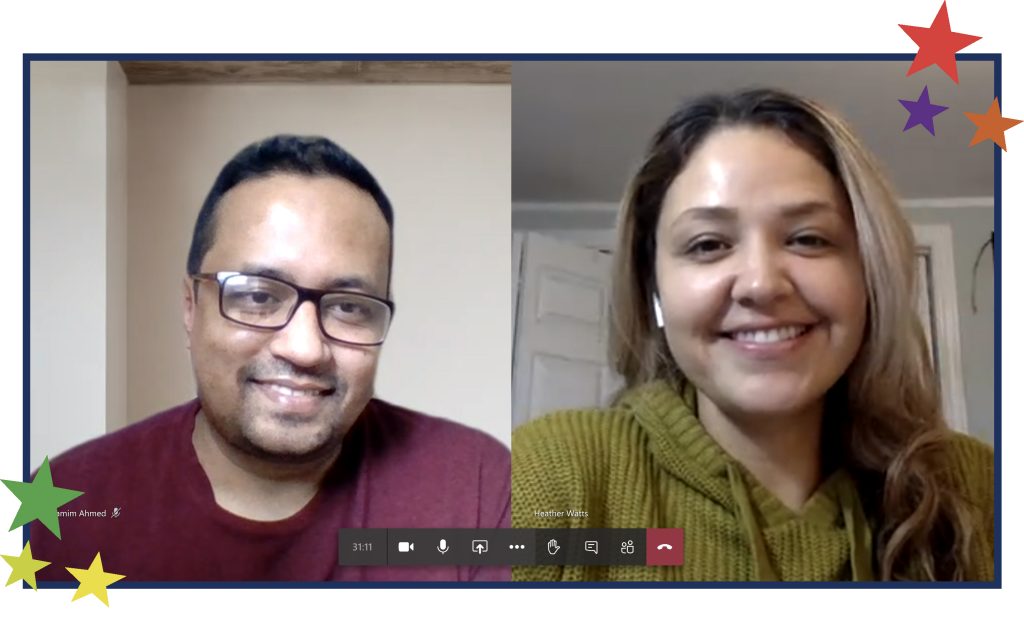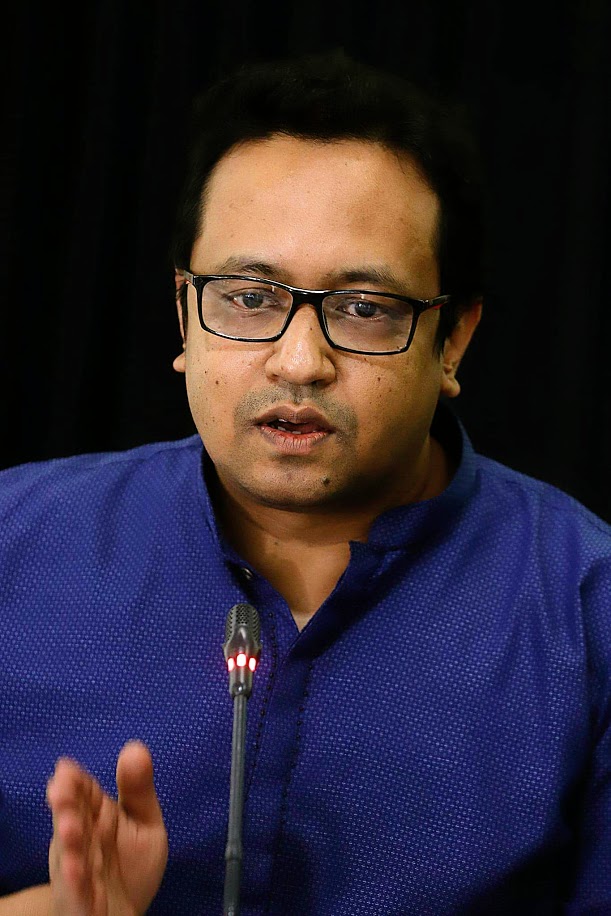Join Us in our KidsConnect Session!
The Importance of Meaningful Land Acknowledgements (Part Two)
Journey of an International Student (Part Four): “There are no shortcuts to any place worth going”
by Shamim Ahmed
In our ‘Journey of an International Student’ series, Shamim shares his experiences and journey as an international student parent at the University of Toronto. This thoughtful monthly series aims to highlight experiences of international student parents, find connections in our community, and uplift voices of others. If you have story or idea for our Redefining Traditional community, you can submit it here!
International students have their own challenges of coming to a new place – but this has some excitements too. Meeting new people, visiting new places, exploring new cultures and knowing a different society have some unique charms of its own. Despite this, it’s important to keep thinking about how we are involved in our academics, and this requires a lot of attention and care for domestic and international students alike. This might look differently for many of us right now as we enter into 2021, but I believe that these elements are still very much important in our education and experiences as students at UofT. Here are a few of my experiences that I hope are helpful for you, along with some resources!
The Importance of Meaningful Land Acknowledgements
Our land acknowledgements series highlights important stories and teachings from each of the Redefining Traditional team members – Heather, Shamim and Kaitlyn. Through these posts, we aim for our community to think about how land acknowledgments are immensely important, and to ensure we engage in teachings about specific cultures beyond a day or month of recognition. We also highlight important questions to support our community so that an acknowledgement moves beyond a ‘script’ and towards an ongoing conversation.
Our first installation is by Heather Watts!
Three Things I Wish I Knew About Being Both a Parent and a Grad Student at UofT
By J. Sparks, Graduate Student at the University of Toronto
This is a re-post from the Intersections blog at the Family Care Office at the University of Toronto (learn more here!). While this post is based on experiences at the University of Toronto, we recognize that these insights apply to all student parents in higher education and we invite you to share any insights in the comments below!
If I had an opportunity to go back in time, I would have shared these three things with my former self about what to expect as a parent and as a student enrolled in graduate studies at the University of Toronto.
Allow Us to Reintroduce Ourselves…
By Shamim Ahmed and Heather Watts, Design Researchers at the Innovation Hub & Redefining Traditional

As we are jumping back into the Fall semester, we wanted to take a moment to re-introduce ourselves to you all. We are Shamim Ahmed and Heather Watts, the Design Researchers of the Redefining Traditional: Making Higher Education Family Friendly project at the Innovation Hub – University of Toronto. We look forward to bringing our voices and stories to this blog space, as well as be in community with you on our Facebook group [insert link]. If you haven’t joined already, we’d love to have you!
A bit about us and what brings us to this work…
Reflections on Orange Shirt Day
By Heather Watts – Design Researcher at the Innovation Hub
Last year around this time, I wrote the following post on my Facebook page:

A lot of feelings as I dropped Nico off this morning, sporting his orange shirt. Today is Orange Shirt Day, a day designed to educate people and promote awareness about the Indian residential school system and the impact this system had on Indigenous communities for more than a century in Canada, and still does today.
This system was assimilation and erasure packaged and tied as ‘education’. What do we mean when we use this word? What are we teaching? What are we intentionally leaving out? What narrative are we working to maintain?
As I walked my little love to his school here in Toronto, I reflect, what narrative continues to be the one that is upheld? What constitutes knowledge? Who is taught about and in what way are they remembered, revered, and celebrated?
Let us not just be performative on this day, or any day for that matter. Beyond shirts. Beyond land acknowledgements. Let us be critical. Let us be systemic and institutional change agents.
Over the past twelve months since I posted these words, I have engaged in the topic of Reconciliation on a scholarly level, as well as on a personal level. As an Indigenous woman with family members who are residential school survivors, there is a lot to consider when it comes to this journey of Reconciliation. I still very much believe that there is a dominant narrative that our institutions of learning work to maintain, and in large part, that narrative omits, marginalizes, and misrepresents Black, Indigenous and People of Colour (BIPOC).
A Fall Like Never Before: Academic Success Can Still Be Colorful!
Written by Shamim Ahmed – Design Researcher at the Innovation Hub

Academic success is so important for students, and we know it well. We often think academic success is all about studying, but if we reflect on lifestyles where academic progress seems to flourish for folks, studying is not necessarily the only thing that has helped them succeed. A little bit of planning and giving importance to the smaller but important things in life supported them to be successful in their academic journey. However, this summer was difficult for most of us. Due to COVID-19, students might have to make up for classes, continue home schooling or face financial uncertainties. Due to the pandemic, many students might not have been able to engage in summer activities, visit family, or have a summer vacation that helps us return to the Fall semester energized. It is well known how overwhelming it can be returning to school – especially now, no matter your degree or grade. It is not just applicable to new students, but also for the returning students after an uncertain summer of 2020.
The Conversation That We Need to Have
By Shamim Ahmed

I was sitting on the couch, reading a popular “Bengali”[1] fiction, and all of a sudden heard my daughter mumbling “brutal”. I looked at her once, and again went back to my reading when I heard her infuriatingly saying “that’s totally unacceptable”. I took a pause from my reading, sat back properly, looked at the television and saw that horrid image of a policeman sitting on the road with his knee placed firmly on a person’s neck with a stone face. I was a little startled whether my 12-years old daughter should be watching this, but then she left on her own without saying much. I inquisitively continued to watch the news and came to know about the horrific act of killing George Floyd, a 46-year-old black American, during an arrest for allegedly using a counterfeit bill. To be frank, I came to know about the allegation at least two weeks after the killing, as I was not curious about the reason why a person could be killed so brutally. I had no idea why a person should be treated so inhumanely as if he was not a living object. I was shocked.